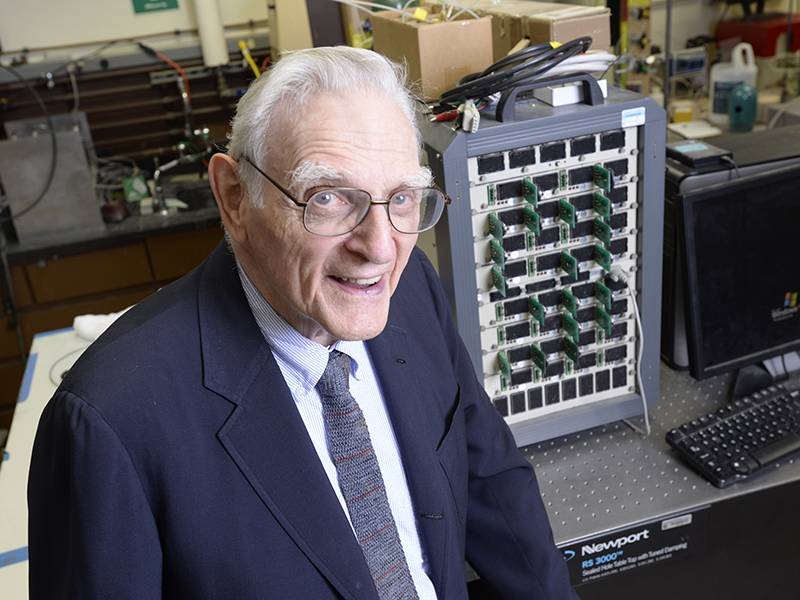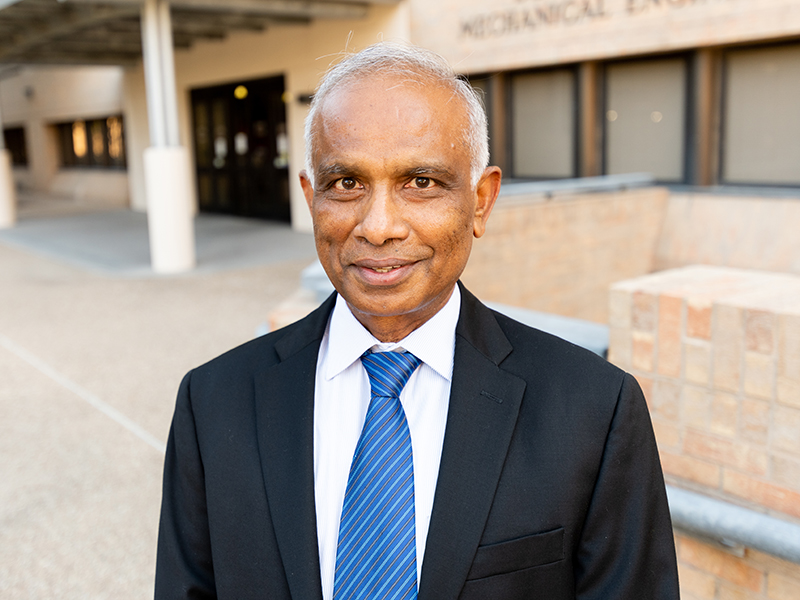A research team from The University of Texas at Austin featuring battery luminaries John Goodenough and Arumugam Manthiram has secured a grant as part of the Battery500 consortium to continue their groundbreaking work.
Led by the Pacific Northwest National Laboratory, the consortium is one of the largest battery research programs in the world. The researchers are developing next-generation batteries for electric vehicles with a goal of outperforming current lithium-ion batteries.

“We have come a long way with fundamental research and development that has led to widespread commercialization of lithium-ion battery technology. As we proceed with automobile electrification, long driving range between charges with acceptable cycle life is critical,” said Goodenough, who was honored in 2019 with the Nobel Prize for his battery research, most famously the invention of the lithium-ion battery. “UT Austin is proud of being part of the Battery500 Consortium, which is focused on more than doubling the energy density with long cycle life.”
The UT Austin team will receive $4 million over five years as part of a larger $75 million investment in Battery500. The work is supported by the Department of Energy’s Vehicle Technologies Office (VTO), and it is part of $209 million awarded by VTO for advancing electric vehicles, batteries, and connected vehicles.

This is the second phase of development for the consortium. The primary objective in this round is to develop robust high-energy batteries with a specific energy up to 500 Wh/kg to meet DOE performance and cost goals.
The UT Austin team is focused on the development of high energy density cathodes that minimize the use of the expensive element cobalt. They’re also working on high conductivity solid electrolytes for high energy density batteries with lithium-metal anode. The work also involves in-depth analysis of battery degradation, materials scale-up and advanced characterization using the Texas Materials Institute (TMI) facilities, said Manthiram, director of TMI and chief scientist of the Battery500 consortium.
“We are extremely pleased to work with a great group of colleagues at the national labs and universities to accomplish the goal of developing next-generation of low-cost high-energy density batteries while also advancing US manufacturing capabilities,” said Manthiram.







